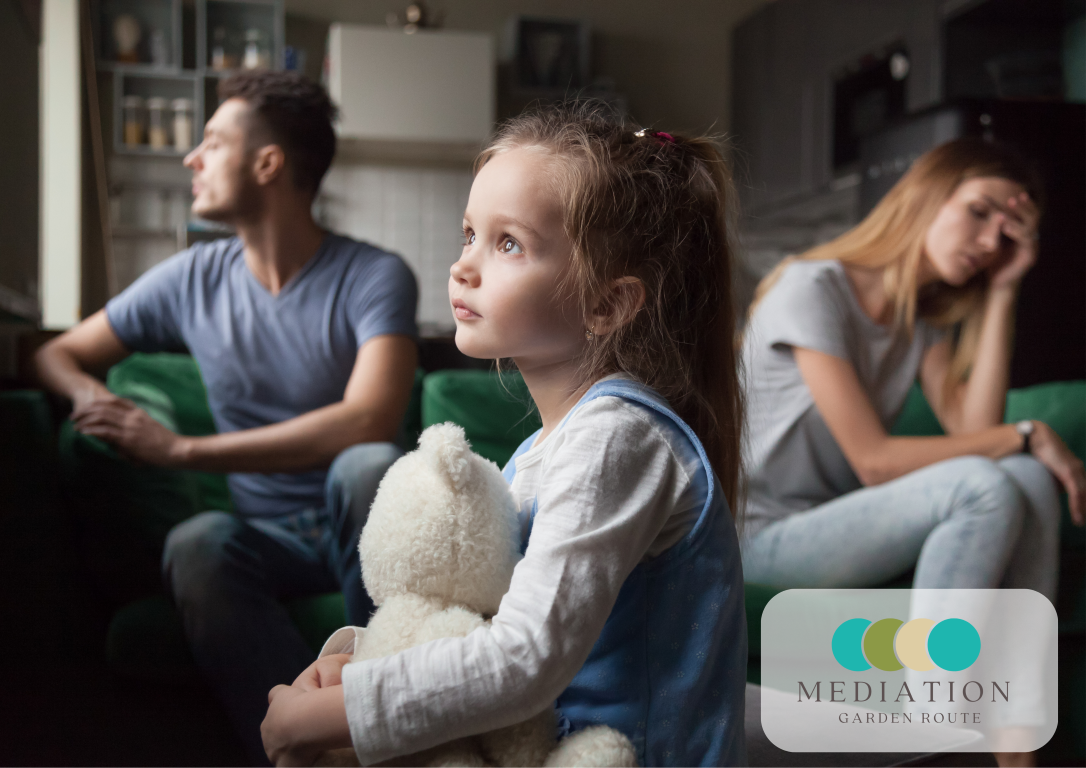Sponsored Content Video
BUSINESS NEWS AND VIDEO - When we speak about families in society, many of us consider the societal norm and concept of family culture in the traditional sense. This usually relates to the so-called “intact” family that includes a mother, a father, and children living together under one roof.
The reality is that this is no longer the societal norm. Today’s families come in all forms and yet, when these families face challenges, the systems designed to support them often rely on outdated assumptions, or they compare the standards, operation and culture of these families to that of the more traditional “intact” family structure.
This creates an environment for these families where they feel isolated and shamed, causing them to avoid asking for help when needed.
Our legal framework still struggles to evolve with the times. It applies rigid rules to fluid, modern realities and places enormous weight on the kind of formal evidence that simply doesn’t capture the nuances of everyday family life. The challenges children and parents face in 2025 are vastly different from those experienced a decade or two ago. Our support systems, and especially our conflict resolution processes, must evolve accordingly.
Court systems can be adversarial
In today’s culture, parents and families are facing unprecedented levels of stress, and when separation or divorce enters the picture, it often throws them into an emotional, financial and logistical crisis. At this point, families typically turn to the court system, expecting support and resolution. Instead, they often find themselves thrust into an adversarial process that pits parents against one another, in a process that can take years to conclude.

Preserving vs Warring relationships
South Africa’s court system, especially in family matters, is overwhelmed. It is not built to preserve relationships. Rather, it becomes a space where families are encouraged, if not forced, to battle it out. They are often left with an impossible task of proving their case, which makes these disputes disproportionately expensive with the inclusion of different experts, and is consequently unattainable for most families.
This can turn deeply personal matters into public mudslinging matches that carry no weight in law because, when it comes to family life, most of the arguments are subjective and depend on your own value system, culture and beliefs. Socio-economic issues also seriously complicate these disputes and create severe power imbalances within families. Accusations are flung, personal pain is aired, and children are often caught in the crossfire.
In the courtroom, it’s not the full truth that’s heard, but rather what can be proven by way of admissible evidence. And that’s the heart of the problem: many family conflicts happen behind closed doors, where there are no witnesses or documentation. We see this often in families where abuse is a factor, where these are lived experiences that are real and damaging, but hard to prove.
Even in serious domestic violence cases, lack of evidence may result in survivors being advised not to pursue protection orders, because the last thing you would want is to make a survivor of abuse lose a case in front of their abuser because they were unable to sufficiently prove a case by way of admissible evidence.

True protection and resolution
This does not mean the abuse didn’t happen. It simply means that the legal system, with all its rules and procedures, is not always equipped to offer true protection or resolution. These dynamics are even more complicated where parties share children, where we require survivors of abuse to co-parent in the traditional sense with their abusers, because it is in the best interests of the children.
While it is most certainly in the best interests of children that their parents work well together in co-parenting, it often happens that survivors of abuse and their abusers are forced to co-parent without implementing very necessary safeguards in parenting plans and divorce settlements, or orders. This indicates that the system and those who operate within it, lack the logistical capacity and understanding necessary to assist these families with the challenges that they are facing.
Such families become branded as being difficult or high conflict, leaving the children in a vulnerable position that is increasingly dangerous to their mental, emotional, and sometimes physical well-being.
Fragmented approach to disputes
Another challenge within the legal system is its fragmented approach to family disputes. In South Africa, in some instances, families often must approach different divisions of the court to resolve different issues within the family. This separation poses a major problem because these issues are deeply interconnected, and separating them can lead to dangerously narrow conclusions.
While the law rightly prevents one issue from being “played off” against another (such as denying contact between a parent and child because of unpaid maintenance), in practice, these aspects cannot be viewed in isolation.
A parent who is the primary caregiver is often unable to earn additional income or build financial security due to their day-to-day parenting responsibilities. When courts and legal processes fail to consider this, they reinforce an imbalance that leads to resentment, conflict, and sometimes outright exploitation. Decisions that ignore these complexities are not only unfair; they are unsustainable and leave vulnerable families in crisis.
Legal Abuse
The fragmented approach also enables another troubling form of abuse that is not yet fully recognised in our legal system, which is legal abuse. This occurs when one parent, often in high-conflict situations, repeatedly brings matters back to court, not to protect the children or pursue justice, but as a form of control and manipulation. These parents disregard court orders, professional recommendations, and the emotional and financial toll of continuous court battles. Their goal is often to exhaust the other parent, to delay progress, or to shift power back into their own hands.
This behaviour clogs an already overwhelmed legal system, and it weaponises a process meant to deliver justice.
It diverts resources and attention away from genuine cases and places an unbearable burden on the other parent, often the one trying to maintain stability for the children.
Thankfully, with courts increasingly moving toward mandatory mediation as a first step, there is now a system in place to filter out unnecessary litigation and redirect families toward co-operative problem-solving.
This is where mediation becomes a vital tool.
The solution lies in mediation
Mediation offers an alternative, one that is compassionate, flexible, and future-focused. It is a voluntary and confidential process led by an impartial third party, where families work together to find workable, realistic solutions to their challenges. In mediation, the aim is not to win or to make a case, but to resolve.
Because of its confidential nature, the information and discussions had in mediation may not be used in a court of law, which creates a space where parents can have honest discussions without the fear of being judged.
Unlike in the courtroom, mediation does not rely on proving or disproving allegations. It relies on conversation, understanding, and collaboration. It creates a safe space where everyone, especially the children, can have their needs considered.
Solutions crafted in mediation are practical, tailored, and deeply personal. They can consider mental health concerns, emotional strain, the developmental needs of the children, schedules, living arrangements, and even shifting family roles.
Another advantage of mediation in today’s world is that it can be done virtually. This makes it an accessible option for families dealing with logistical challenges, whether they live far apart, are navigating high-conflict situations, or cannot afford to take a full day off work to attend court.
Mediation does not erase conflict, but it allows families to manage it with grace. It helps them move forward in a way that preserves dignity and relationships. Even in conflict, families can find a new way to function, one rooted in co-operation instead of combat.
Our children - the future of our society - should not have to be raised by a defeated parent.
Now more than ever, our families need the information and tools that meet them where they are, not where we think they should be. Mediation offers exactly that: a path forward, through the chaos, toward peace.
VIDEO: Family Disputes & Mediation: A Practical Alternative to Litigation

‘We bring you the latest Garden Route, Hessequa, Karoo news’
















